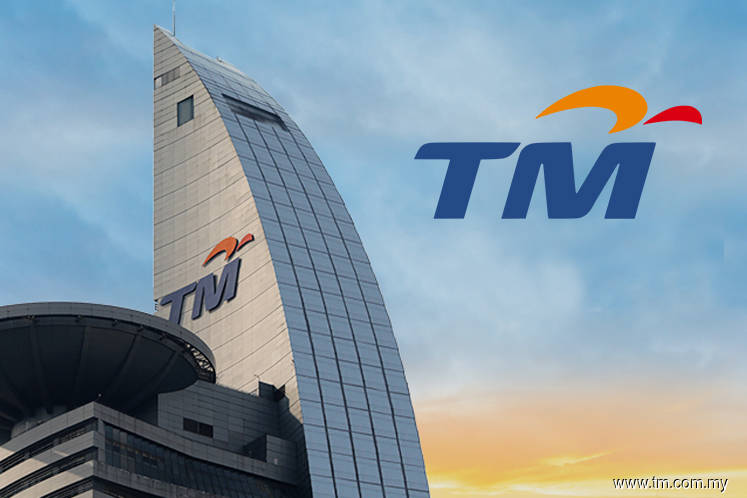Analysts say TM's sale of non-core assets is necessary

KUALA LUMPUR (March 18): Telekom Malaysia Bhd (TM)'s sale of non-core assets is necessary for the group's further growth in light of its strategy and financial performance over the last year, say analysts.
TM recently announced that it was selling its Annexe 1 and Annexe 2 buildings at its headquarters for RM273.4 million or RM312 million, depending on whether the buyer is buying the building vacant or with tenancy agreements in place.
An analyst who asked not to be named told theedgemarkets.com that the telecommunication company's sale of non-core assets was timely, as cash generated from the sale can be used to finance further business activities, instead of borrowing more and developing a higher gearing ratio.
"They have always been saying they wanted to optimise their assets. Whatever assets they have, they want the assets to give the optimum profitability.
"Any business would want to do that, it is something that should have been done in the first place," he said.
At the end of the fourth quarter ended Dec 31, 2018, the group said it had borrowed RM8.57 billion, with 18% or RM1.54 billion denominated in US dollar.
The analyst added the sale was something the group should be doing in light of 2018's diminished profit and revenue.
TM saw a 78% decrease in net profit for its fourth quarter ended Dec 31, 2018 (4QFY18) to RM69.66 million, from RM277.01 million previously.
Quarterly revenue also decreased, in this instance by 3.5% to RM3.09 billion, from RM3.2 billion in 4QFY17.
For the full financial year, the group saw its net profit decline by 83.5% to RM153.15 million from RM929.75 million the previous year, with revenue dipping 2.2% year-on-year to RM11.82 billion from RM12.09 billion.
In a similar vein, another analyst who wished to remain anonymous said the sale of non-core assets, while part of the group's move to improve its balance sheet, was also part of a drive towards being "an asset-light entity", as the telco seeks to further digitalise.
"From the point of view of telcos moving into digitalisation, the intention is to move towards being an asset-light entity.
"So you free yourself from assets and non-core investments so that you can focus on selling your products and services through a digital landscape," he said.
The analyst added he does not forecast any more such sales occurring in the near term, as the group has been continuously working on the sale of non-core assets as part of its strategy.
"They (TM) have a lot of legacy assets such as exchanges, with some of these exchanges being converted into IT exchanges.
"There is a need to relook at the entire portfolio of assets that they have," he said.
According to a media report today, the telco has a land bank of RM2.9 billion as per its 2017 annual report, with the land and buildings being distributed across Malaysia, as well as a property in Hong Kong.
TM acting group chief executive officer Imri Mokhtar was reported to have said the group over the past few years has been looking at unlocking the value of its buildings as it continues to optimise its network, adding that it will only sell if the group gets "good value" for the assets in question.
Both analysts said the group's FY18 results were resultant of the group lowering its prices as per the Mandatory Standard on Access Pricing (MSAP), as well as increased competition from other telcos, particularly in the realm of high-speed broadband.
The duo added the jury is still out on the full impact of MSAP, and that only later this year will both investors and the telco industry be able to grasp the pricing policy's full impact.
"They are no longer the sole player now (in high-speed broadband), there are more people coming into the game (the high-speed broadband market), things are getting more competitive, they are not a monopoly anymore," said the first analyst.
Meanwhile, the second analyst said that in the short term the group will have to deal with challenges such as a reduction in its workforce as it moves forward with its digitalisation agenda.
"They need to address a couple of structural issues that they have. If you look at their cost base, they have close to 30,000 people as a workforce. That number is quite heavy for a telco.
"As they further move into their digitalisation strategy, they need to address some of the human capital requirements," the second analyst said.
As of 4:20pm, TM's share price was down one sen or 0.31% at RM3.17, for a market capitalisation of RM11.9 billion. — theedgemarkets.com
Never miss out
Sign up to get breaking news, unique insights, event invites and more from EdgeProp.
Latest publications
Malaysia's Most
Loved Property App
The only property app you need. More than 200,000 sale/rent listings and daily property news.
